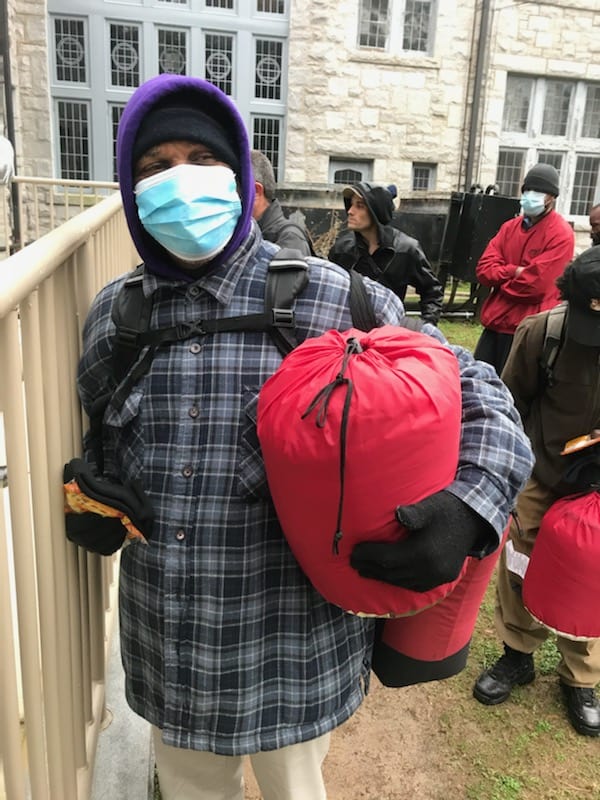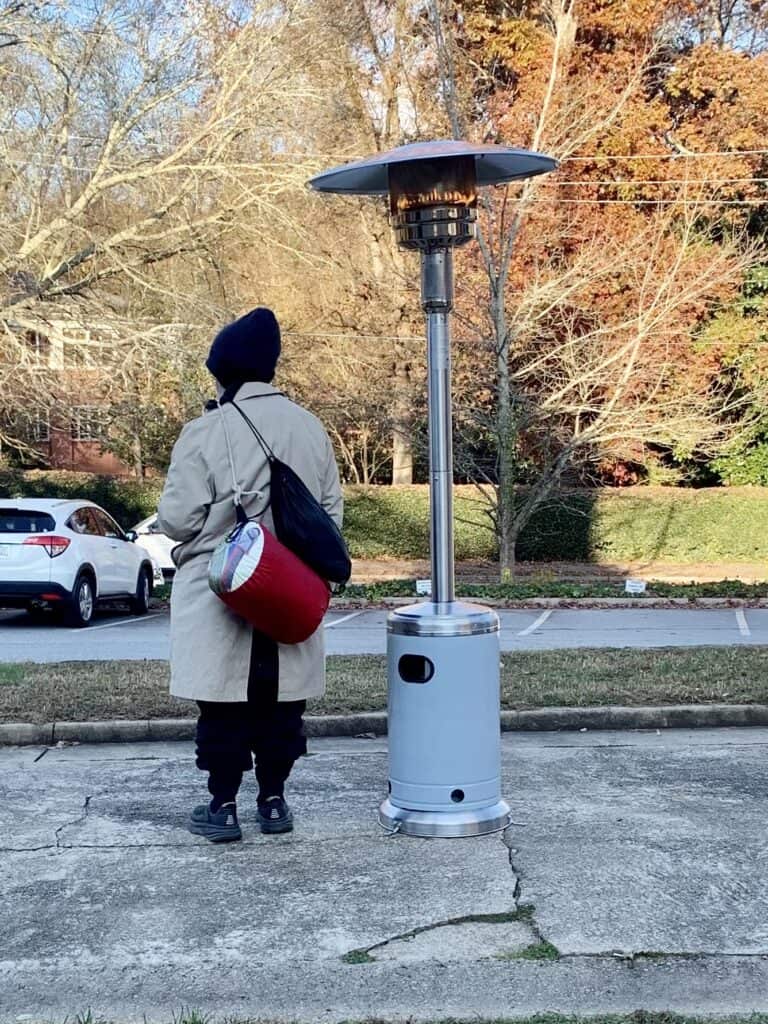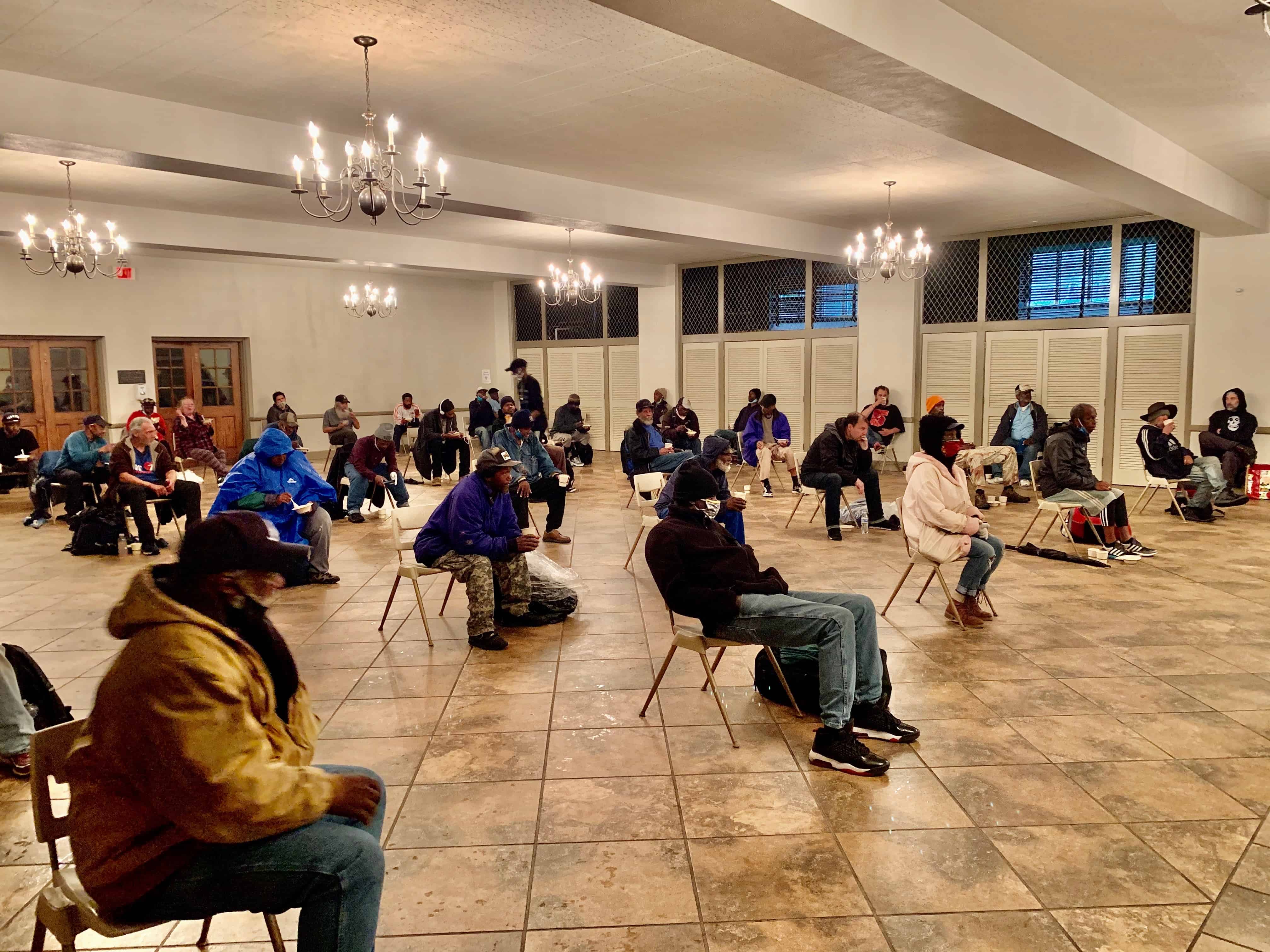By: Brittany Fiscus-van Rossum
I get it: our defiantly hopeful need as Christians to remind ourselves this year as our church buildings sit empty through the Easter season that the church of Jesus Christ is not, nor ever has been, the building in which we worship. And theologically, I agree whole-heartedly with this bold and true assertion: the body of Jesus Christ is made up of beloved human beings and cannot be reduced to any one place where those humans gather. From the day the once-mourning women stumbled from an empty tomb, to the early days of our faith when scared yet defiant followers met in catacombs, homes, and upper rooms, it is markedly “Christian” to experience worship outside an immaculately decorated sanctuary. The tomb is empty, the sanctuary is empty—we’re being faithful in this unprecedented time. I get it.
I get it, and yet if I am bold enough to be honest, something about these prolific church-is-not-a-building assertions rang a little hollow for me this Easter season. This probably sounds absurd coming from a pastor whose congregation rents our space and doesn’t even own a building of our own, but I did not find comfort in this particular self-reassurance. Because, yes, while the assertion is true, buildings sure are nice when you believe the work of the church is to shelter the poor and homeless, cook food for the hungry, and care for the sick and hurting.
To be the church that does what Jesus taught us to do is to have room to spread out—bathrooms, a stove, a fridge, a storage freezer, and busy working hands. This church is incarnational, embodied, and it takes up and uses space. The church may not be a building, but Jesus sure did teach us how we might utilize one. So, what are we to do when the faithful way to protect some of us is to shut those buildings’ doors? The answer cannot be to merely assure ourselves with Facebook proclamations, “well, the church wasn’t the building anyway!”
For those of us at Mercy Church this process has been an exhausting and ongoing journey of discernment. Hear me say, I know it has been difficult for all of us and ranking congregational struggles is not a competition in which I would willingly partake. But I do believe our community was faced with some unique and specific challenges when the resounding word became “stay home.” Because, you see, the majority of our congregation does not have a home.
As a church congregation (not a separate mission or service organization—but as the church itself) our community serves one another nine meals a week. We share clean and dry clothing with one another. We give access to space that allows some of us the only place in the neighborhood where we can go to the restroom and wash up indoors. Our worship space is used to shelter from the rain, heat, and chill—the only place to be indoors for a little while to get some rest without being told to move along. Our “sanctuary” can be a place to charge your phone or if you do not have one, the only place to connect with others who have information about what is happening around you. We not only disseminate nourishment, but vital information about how to stay safe and well.
As more knowledge about the severity of the virus became available and “flatten the curve” joined the collective vernacular, for us, each day became an intense brainstorming session about how to best keep our community safe, fed, well, and informed. Every day we were troubleshooting and creating new “best practices.” Every day we were reaching out to our medical professional partners begging them for recommendations and information. We had to ask ourselves and others we trusted “how do we keep our community safest?” How do we keep our community safest, not just from the virus, but from hunger, misinformation, violence, the elements, and ostracization? How do we safely cope with our growing numbers as other services for the homeless grind to a halt or shut down? Is the city doing anything to respond to these concerns? What must we do in the meantime for those we claim as our brothers and sisters in Christ?
If I can once again be so bold as to be brutally honest, the process of daily discerning, researching, and seeking advice not only made me exhausted, but sometimes it left a bitter taste in my mouth. Every time I got online, I saw the active, vibrant conversations of my colleagues in ministry about Zoom calls and online worship—new opportunities for exciting creativity, partnership, and collaboration—and for a time I felt alone in our work. Important though those conversations were, few of them seemed relevant to meeting my congregation’s needs. For us it was never as simple as imagining worship in a new way or staying connected on a different platform (important as those things are), it was about how to keep our congregation connected to essential resources they depend on and need to survive. I became exceedingly frustrated with comfortably middle-class friends’ “stay home if you’re a good Christian” Facebook posts (flavored with the predictable amount of ‘I’m woker-and-more-intelligent-than-thou’ judgment). And while yes, for many of us, staying home is the faithful response, let us not be decidedly oblivious to all the poor people out there for whom “staying home” is not a moral prerogative.
Fortunately, God only ever tolerates my self-righteous bitter thinking for so long, before revealing the gifts of grace and inspiration that surround me. Something I have long believed about Mercy Church is that we do not do the work we do alone, and that has been revealed now more than ever. First and foremost, what we do is by the grace of God, but it is also through an abundance of faithful partners and friends. Though our challenges felt unique and scary, others were there to faithfully help. Countless friends and volunteers stepped up to say, “what do you need?” sending cleaning supplies and hand sanitizer, paper products and canned goods, making us food and sewing us masks, praying for us, and supporting us monetarily. My pastor friends reached out and asked, “how is your community doing? What can we do to help?” Our longtime friends at Druid Hills Presbyterian Church opened up even more of their space to us, allowing us to serve more food and give access to bathrooms safely, and helped us partner with Love Beyond Walls to get an outdoor sink on their property. Our friends at St. John’s Lutheran Church gave us an open invitation to use their kitchen and other space for any of our needs in the current crisis. Maurice Lattimore from Feet on the Streets Ministry showed up each morning to help us serve and clean and sanitize. Together, and yes, with a lot of tireless work and commitment on our own part, we could do this: we could safely care for our community even in a pandemic.
I soon learned of other individuals and ministries creatively answering Jesus’ call to be present to those on the margins—to remember those without homes in which to shelter—and I felt reinvigorated and even hopeful in the work we do together as the church. The church is not a building, no, but I’m exceedingly grateful to Druid Hills Presbyterian and St John’s Lutheran, who share theirs with the poor. The church is not a building, but it does take up space: it needs a place for its people to wash hands, to sleep, to eat, and to shelter. The church is not a building, but buildings sure are nice for sheltering and caring for people in a pandemic. So, I give thanks. I give thanks for the spaces we can still safely utilize for cooking, cleaning, caring, and distributing. I give thanks for the incarnational acts of human bodies sharing goods, makings masks, cooking soups, and bending knees in prayer for the poor among them. I give thanks and I pray that our beautiful and diverse body of Christ will continue to creatively seek God’s guidance on how most faithfully to use our sacred spaces long after this pandemic has passed. I pray that when all our doors are joyfully and safely reopened, we will not take for granted the physical spaces we are blessed with and will share them with the poor with gratitude and abandon. Maybe one day God will even see fit for Mercy to have its own building to share—more miraculous things have happened. But in the meantime, I’ll be thankful for embodied grace, for creative resilience, for community in the many forms it can take, for knowledgeable and generous partners, for weary and loving pastors masked and gloved, for the tireless work of so many Christ-followers, and for buildings… when they’re empty and when they’re graciously shared.






